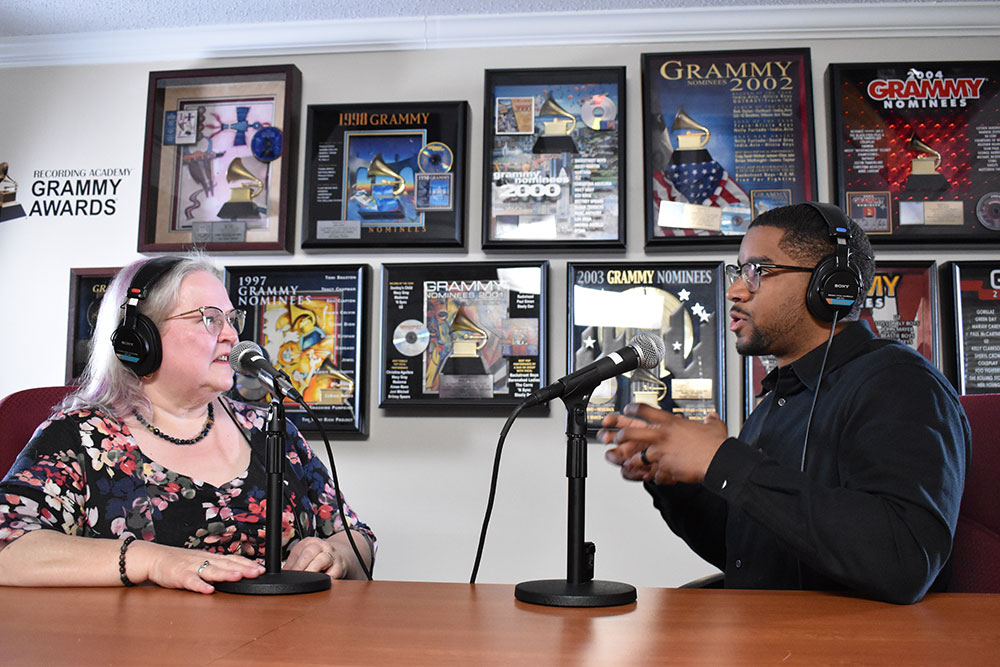
Nuclear Safety Expert, Coles Alum, Talks Leadership
KENNESAW, Ga. | Sep 24, 2019
Charles Casto led U.S. cleanup efforts after Fukushima disaster
The students assembled in Kennesaw State’s University Rooms on Monday might never find themselves in the same type of leadership role that Charles Casto had, when he oversaw the U.S. government’s response to the 2011 Fukushima nuclear disaster in Japan.
However, Casto told the students, the same principles that served him well in Fukushima can be utilized by anyone who is in a leadership position. In his lecture on campus hosted by KSU’s Honors College, Casto offered a concise directive.
“When you get an opportunity to lead,” he said, “Lead.”

Casto, a Kennesaw State alumnus, led a team of American experts who addressed the challenges in the wake of the Fukushima nuclear power plant meltdown. He saw qualities in that team that he passed along to the students: Leaders promote a clear and compelling vision and strategy, cultivate and foster continuous improvement, and set a personal example by their behaviors.
“Whether a small or large effort, gain as much leadership experience as possible,” Casto said. “Then use those experiences, good or bad, as a foundation for continuous improvement. Finally, be ready so that when the call comes – whether early in your career, mid- or late-career – you'll set a great example as a leader and have successful outcomes.”
Casto wrote the book Station Blackout about his 11 months as the director for site operations in Japan responding to the Fukushima Daiichi Nuclear Power Plant accident. Each student who attended Monday’s lecture received a copy of the book.
That included Honors students from both the Kennesaw and Marietta campuses who read Station Blackout in a book club that is this semester’s Honors Discovery. An Honors Discovery is a non-graded course on a special topic of study that students can participate in outside of typical course structures.
“It was fantastic because I was able to hear the effect that this book had on students from different majors with different perspectives,” said Susanna Grafton, a sophomore majoring in business management. “We also would think about how this can apply to our future careers. I’m hoping to be accepted into officer training for the Air Force, so the leadership principles are extremely important for me to develop.”

Casto outlined the events of March 11, 2011, when a magnitude 9.0 earthquake and 45-foot high tsunami slammed eastern Japan, causing three reactor cores to melt down at the Fukushima nuclear power plant. What ensued, Casto said, was “unfathomable challenges with amazing feats of heroism,” such as a team of plant operators who navigated the hazardous conditions to try to reach specific valves in order to relieve pressure inside the reactor.
“It was a kamikaze mission. They all thought that no one would come back from it,” Casto said. “They tried three times, but they couldn’t vent the reactor in time before the building exploded.”
Casto also commended the operators who remained in the chaos of the control room, working in the dark with flashlights and having no knowledge of what the radiation level was. He quoted a good-bye text that one of the workers sent to his child: “Your dad will be here until the end. Take care of your mom.”
“Most people would say, ‘I want to get out of here,’” Casto said. “You don’t know where your family is and what condition your home is in. But they had to stay.”
Within that crisis are lessons that any leaders can apply to their organizations, Casto said. For example, how does a leader deal with people’s emotions?
“When you have a situation causing fear and uncertainty, you have to provide as much information as possible to your people,” he said. “We might not be able to tell them everything at that moment, but what can we tell them to reduce their uncertainty?”
The leadership lessons resonated with KSU junior Abigail Haines, a political science major. She read Station Blackout with the Honors book club, then gained further insight from listening to Casto speak.
“My main takeaway would be how to apply those types of crisis management skills into everyday life,” Haines said. “Obviously this was a terrible accident and it’s not going to happen all the time, but it’s a look inside leadership and how to apply it to what you’re doing.”
The Beacon Foundation sponsored Casto’s lecture and book signing. The foundation is a frequent supporter of Kennesaw State, including annual contributions for international travel for students in the President’s Emerging Global Scholars (PEGS) program and to Campus Awareness, Resource & Empowerment (CARE) Services.
“We are delighted that the gift from the Beacon Foundation allowed us to sponsor this special presentation by Dr. Charles Casto,” said Rita Bailey, dean of the Honors College. “For him to relay his experience as an international leader in crisis management was invaluable. Students heard firsthand about his leadership experiences in the middle of an absolute crisis. This was an amazing opportunity and something I personally will never forget. We are grateful.”

Casto, who greeted the audience with a “hooty hoo,” earned his Doctor of Business Administration from Kennesaw State. In fact, he is part of an Owl family as his wife Beverley (bachelor’s and master’s degrees in education) and their daughter Jessica (B.S. in political science) also earned their degrees from KSU.
“Our family is immensely proud to participate in Kennesaw State’s success,” Casto said. “As a member of the Black and Gold family, it’s a fulfilling experience to share in the many successes of this great university as it continues its global influence. As I travel the world, I recognize that the reputation of KSU grows continuously.”
—Paul Floeckher
Photography by Jason Getz
Related Posts

Kennesaw State Partnership Equips Local Entrepreneurs with Tools for Success

Gathering Spot CEO Ryan Wilson on Building a Social Club to Inspire Connections.

Kennesaw State MBA student leveraging degree work for a cause

CEO Magazine Ranks Kennesaw State Executive MBA Top Program in Georgia, No. 11 in the World














